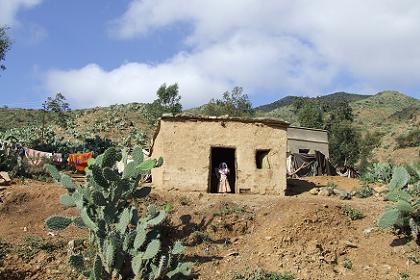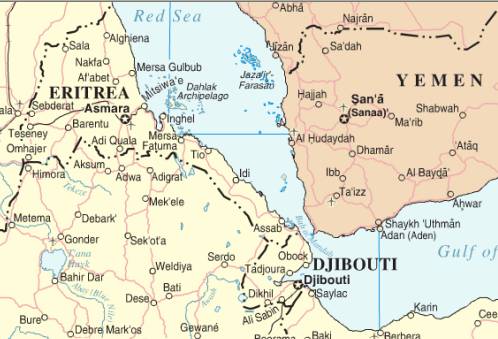MILITARIZED Diplomacy: foreign policy ERITREA between continuity and discontinuity (Last Part) Considerazioni Conclusive
Volendo mettere in luce alcuni elementi caratterizzanti la politica estera eritrea, una premessa è d’obbligo. Infatti, le posizioni prese dal paese in diplomazia non possono che rispecchiare la necessità di preservare e di rafforzare la propria identità di nuovo attore della comunità internazionale e regionale. Il concetto di sovranità nel Corno d’Africa è, storicamente, un valore molto sentito, e sulla cui base sono state spesso combattute guerre drammaticamente sanguinarie (come quella dell’Ogaden del 1977-78 tra Etiopia e Somalia e quella of the 1998-2000 border between Eritrea and Ethiopia). In addition, one of the effects of the last war of 1998-2000 is certainly represented by the redefinition of membership of "national" of both contenders. The thirty years' war of national liberation dell'EPLF, in fact, were largely perceived as something "inside" Ethiopia. The latest conflict, however, it is a war between two sovereign countries, seems to have had a successful round. In this case, it is Eritrea "other" against which (and why) the Ethiopian national identity was (re) defined. This observation seems rather true when one considers that, following the victory of 2000, the Ethiopian Government has never tried to absorb Eritrea, or to territorial claims, with the exception of one area that was the cause of the conflict. A valid method, then, to understand the positions - sometimes unscrupulous - the Eritrean government's foreign policy is to set a reflection on a longue durée approach, identifying more than other elements of continuity that characterized the international relations Eritreans, by struggle for national liberation to the country's entry into the international community. Dell'EPLF military victory against the Ethiopian army, as we have seen, it certainly served - as well as to shape and reinforce a sense of Eritrean national unity - as a factor in the radicalization of foreign policy.
The efficient military organization experienced during the years of guerrilla antietiopica was almost entirely transferred to the frameworks and governance structures of post-independence period, thus also the militarization of the state administrative structure. Historically, problems with the sovereignty of the country (from the deposition of the federal structure by Haile Selassie in 1963, the long liberation war which ended only in 1991, up to last cross-border conflict with Ethiopia's 1998-2000), have ended up shaping diplomacy "traditionally aggressive, both in language, both in bilateral and multilateral regional relations.
Eritrea, moreover, is also a "State border". This concept, the role and the geographical and political position of the country, has always been characterized by a certain ambivalence. In other words, it seems to be necessary both in the physical sense (Eritrea has among its neighbors really important state actors such as Ethiopia and Sudan, but it is also located in a strategic Red Sea, making it a ring of meeting with the mainland Arabic) sia in senso ideologico (il popolo eritreo ha vissuto per anni in opposizione alla dominazione di un “centro” rappresentato dalla realtà imperiale etiopica, e ancora oggi la propaganda del governo di Asmara sembra essere tutta indirizzata a enfatizzare una possibile minaccia esterna e a preservare i confini raggiunti durante gli anni di lotta di liberazione).
Per riassumere, quindi, “frontiera” e “militarizzazione” sembrano essere i punti cardinali di una politica estera, quella di Asmara, impostata quasi su una conservazione ossessiva della propria identità di stato indipendente. Ogni eritreo, infatti, vive costantemente in uno stato di allerta e immerso in una propaganda che enfatizza il imminent danger of invasion. It is also why, historically, the Eritrean foreign policy can be described almost as a Militarized diplomacy. In addition, although difficult to envisage redevelopment in the short term - primarily due to continued disagreements with Ethiopia - it is clear that only a "demilitarization" and "demobilization", not only of military equipment, but also of the same foreign policy of the country , finally I can include the risks of a new escalation of violence in the Horn of Africa. It is true that the two challenges go hand in hand, and that in the absence of a reduction of the soul that distinguishes today's militarist government Afwerki, will be difficult to have the same effect in foreign policy.
The border war of 1998-2000 and the demarcation of the Eritrean-Ethiopian border are still an open wound in complex regional chessboard. But the international community's response does not appear to have been adapted to the prerogatives of the complicated state of relations between the two contenders, causing the one hand the emergence of regional hegemonic ambitions, while the other - in addition to a strong sense of distrust of actors International mediation - a dangerous radicalization in foreign policy is domestic. The failure of the boundary - and therefore also of the Algiers Agreements - Is mainly in the fact that he left to "politicize" an issue deliberately kept - at least initially - in a sphere purely "technocratic". The Algiers Agreements in fact (in the proposal made by the U.S. and Rwanda) have been conducted primarily within a sphere technique, leaving largely unanswered the substantive policy issues. These are summarized in at least three points: 1) The principle of conservation of colonial borders in sub-Saharan Africa as set out by the then Organization of African Unity (OAU) during the Cairo Summit of 1964. The Boundary Commission - in order not to derogate from that principle - could not act ex aequo et bono, according only to treaties concluded during the colonial period between Italy and Ethiopia. 2) Ethiopia has won the last military confrontation of 1998-2000. It therefore seems clear that the prospect of passing the village of Badme to Eritrea in the country has triggered some alarm bells, and the fear of a "mutilated victory" achieved with enormous human and economic disputes. 3) The Eritrea, from its side, was certainly the moral winner, as well as military, the war of national liberation, achieved through enormous sacrifices, and in almost complete international isolation. A clash between two winners then? Perhaps, but the problem does not seem be the border itself.
addition, the tools used to contain a new escalation of the conflict have ended up producing the opposite effect. Given these complications, international - and especially regional - you can certainly see how the language used in diplomacy by both countries - although both oriented toward the head-on collision - are profoundly different and temperamentally. While the Zenawi government is more willing to diplomacy and less militaristic (do not forget that Ethiopia has rejected the first decisions of the Boundary Commission, as well as militarily invading Somalia, citing as main motivation the need to destroy the jihadist movements in the country and supported, according to Addis Ababa, Eritrea), Afwerki seems at least to most harsh and unscrupulous. This feature is likely to slide Eritrea in complete international isolation. In fact, there are a few to consider in Asmara as a major source of instability in the Horn of Africa, to become - according to the U.S. government - a real "rogue state", almost like Iran and Korea North.
It is true that a less "global" and more "regional" by the international community - Washington in testa – avrebbe certamente evitato una tale degenerazione politica. Ma del resto è anche piuttosto risaputo che – con una brevissima eccezione durante l’ultimo periodo di amministrazione Carter – il Corno d’Africa è stato sempre inserito all’interno di ampie strategie geopolitiche, che poco o nulla avevano a che fare con dinamiche e priorità politiche più locali, facendone al contempo una delle aree più contese dell’Africa sub-sahariana, ma anche una delle meno “comprese”.




